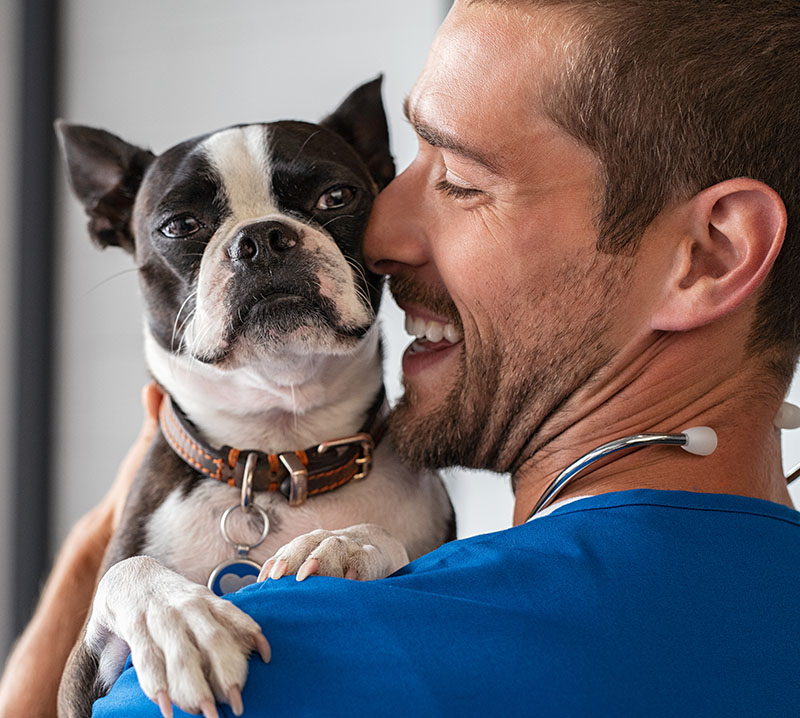Dogs
PROHEART™
By: Caitlin Spillers, DVM [printer-friendly version] Heartworm disease is a very common and serious illness seen in veterinary medicine and can be fatal if not appropriately treated. If you would like to learn more, please see the following article on canine heartworm disease. Fortunately, there are many safe and reliable heartworm preventatives that can protect…
Read MoreCanine Parvovirus
By: Caitlin Spillers, DVM [printer-friendly version] What is parvovirus? Parvovirus is a highly contagious virus that attacks the gastrointestinal system of dogs. It most commonly affects puppies, juveniles, and unvaccinated dogs.. The virus attacks the intestinal lining and causes sloughing of the intestines and can even be fatal. When a dog tests positive for parvovirus,…
Read MoreFear Free: Taking the Fear Out Of Veterinary Visits
By: Caitlin Spillers, DVM [printer-friendly version] For some dogs and cats, the vet clinic can be a place that induces anxiety leading them to react in a variety of unpredictable ways that are stressful for not only the animal, but also their owner. If left unaddressed, this stress may lead to some owners avoiding taking…
Read MoreSpaying and Neutering: Benefits and Timing
By: Caitlin Spillers, DVM [printer-friendly version] Determining what age to spay or neuter your pet is an important decision that your veterinarian can help you make! While it may seem like a simple answer, there is a lot that goes into the recommendation and the appropriate age to consider this for your little one. This…
Read MoreEPIC Study Results May Help Dogs with Heart Disease
By: Lauren Strazdis, DVM [printer-friendly version] The most common cause of heart disease and heart failure in dogs is chronic degenerative valvular disease (CVD). The mitral valve is usually the valve that degenerates, or becomes weaker, over time in a patient with CVD. The mitral valve separates the two main chambers on the left side…
Read MoreWhat Does It Mean if Your Pet Has a Heart Murmur?
By: Lauren Strazdis, DVM [printer-friendly version] A “heart murmur” is an abnormal sound heard by a veterinarian while listening to the heart using a stethoscope. This sound indicates turbulent blood flow in the heart, meaning that some blood is not flowing smoothly through the heart or in the proper direction. There are many parts of…
Read MoreThe Dangers of Heatstroke in Dogs
By: Lauren Strazdis, DVM [printer-friendly version] Dogs cannot regulate their body temperature by sweating like humans do because they only have a few sweat glands on their paw pads. They instead rely on evaporation by panting to cool off in hot environments. No matter how much a dog pants, there are some situations where they…
Read MoreDiarrhea in Dogs and Cats
By: Rebecca Donaldson, DVM [printer-friendly version] Unfortunately, we’ve all experienced diarrhea at some point and know first-hand the discomfort it causes. Our pets can experience that same discomfort if they develop diarrhea too. While not pleasant to discuss, and especially not fun to discover on our carpets, it is important to educate yourself on the…
Read MoreSeparation Anxiety in Dogs
by: Kathryn Junkins Sarpong, DVM, DABVP [printer-friendly version] What is it? – Pets acting anxious, destructively or vocalizing when away from their people. Examples – Your dog chews up the rug and urinates in your house whenever you go to work. The neighbors complain your dog cries constantly whenever you have to run an errand.…
Read MoreDr. Lavender Supporting ViDAS
Dr. Lavender has a yearly mission trips in her role as President of the Spay Neuter Network. The team travels the world providing spay-neuter services (and veterinary training) to underprivileged and overwhelmed areas such as Philippines, and most recently, Puerto Rico. Puerto Rico, post-Hurricane Maria, has seen a rise in displaced animals. With Dr. Lavender,…
Read More









